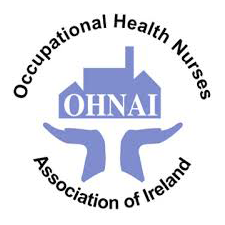
The Occupational Health Nurses Association of Ireland
contact Us -
We would love to hear from you!
Write to us at:
OHNAI, PO Box 5616, Dublin 8, Ireland.
Email us at:
ohnaireland@gmail.com
Jobs
Keep on top of any jobs available in the Occupational Health area both at home and abroad.
Membership
Become a member and stay informed! Our bi-annual newsletter covers recently published work and a variety of other relevant articles.
Events
This is where we let you know about both our own and other events you might be interested in,
What is an Occupational Health Nurse?
Occupational Health Nurses/Advisors are the largest single group of health professionals involved in delivering health services at the workplace and have an important role to play in workplace health management.
A dynamic Occupational Health Department plays a role in the prevention and management of work related injuries, which is cost effective and contributes to the profitability of the company. The aim is that work-related injuries are quickly diagnosed, treated or referred as appropriate for the injury, thus enabling the injured employee to have proper immediate and follow-up medical care.
An Occupational Health Nurse should:
Be registered with An Bord Altranais.
Have a recognised Occupational Health qualification:
Certificate in Safety Health & Welfare at Work
Diploma in Safety Health & Welfare at Wor.
Diploma in Health and Hygiene
Degree in Occupational Health Nursing
BSc in Occupational Safety & Health Management
BSc in Occupational Safety & Health
Masters in Applied Science (Safety Health & Welfare at Work)
MSc in Health and Hygiene.
It is also stated in the Nursing Scope of Practice that all OHN’s and employers should strive to achieve a policy of ongoing education. Membership of the OHNAI and attendance of bi-annual conferences contributes to this education and is recommended for all.
“Reducing the number of accidents is not just an ethical necessity. In Ireland last year, a total of 1.1 million working days were lost as a result of work-related injury and ill-health. There is a strong business case for reducing the number of accidents since the most successful companies usually have the best accident prevention records.
There are rewards for those companies willing to make an investment in safety, such as employee morale, lower employee turnover rates, lower insurance premiums, improved productivity, greater job satisfaction and a positive reputation as a good place to work. American studies show, for example, that for every dollar invested in safety and health, a company can expect a return of between four and six dollars.”
- Extract of a speech given by Mr. Tom Kitt, T.D., Minister for Labour, Trade and Consumer Affairs - November 2001
